How to Organize your Notebook

In the notebooks we use in class, we often write new words in alphabetical order, sometimes with a translation of that word into our first language, or maybe with an explanation in English.
However, your Vocabulary Notebook should be organized more effectively. One way of doing this is by recording vocabulary – collocations and patterns etc. – by TOPIC. You can have separate sections for topics such as ‘Food’, ‘Work’, ‘Health’, ‘Money’, ‘Films’ and ‘Appearance’. This means that words and phrases that are used together in real life are kept together in the notebook.
What Topics might the following photographs be filed under?
For example, in the Films section, an intermediate student wrote the following:
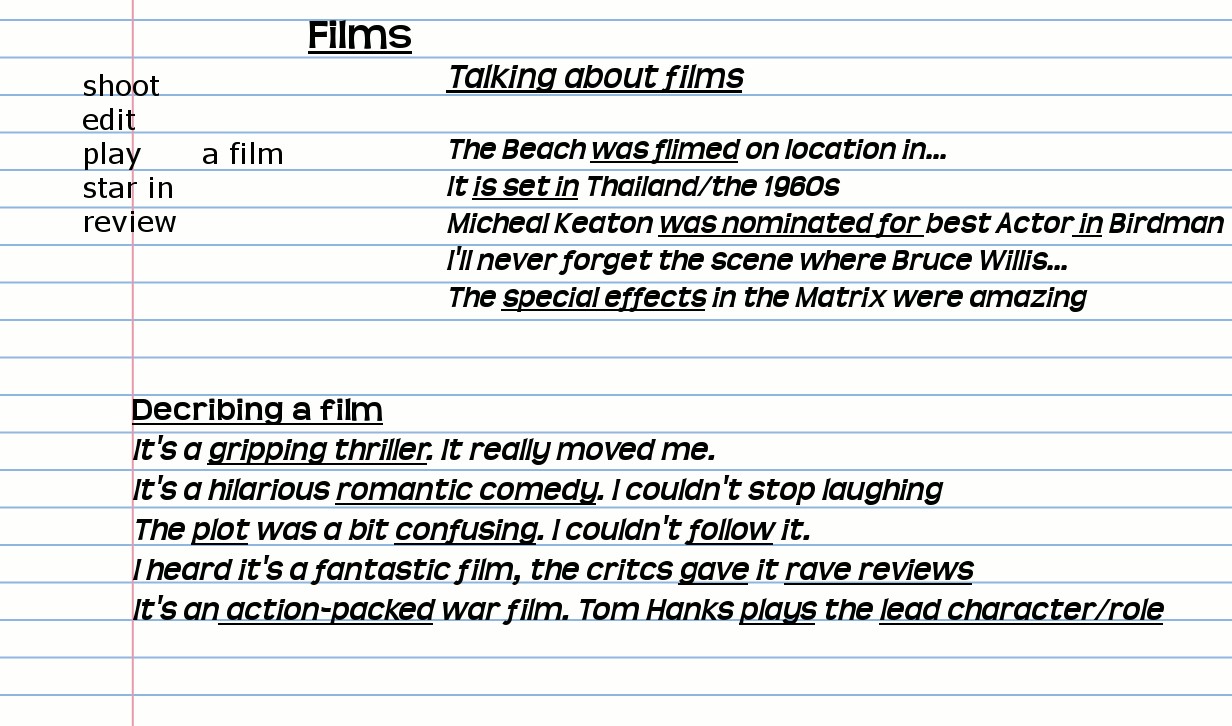
Language taken from English Vocabulary Organiser: Film and cinema pp 94-95
As you might have noticed, there are no strict rules about how you should record vocabulary. You have to find the way, or ways, that work for you. However, one important rule is NEVER write single words. Also, write complete and personalized examples – write examples that relate to you and your life, your thoughts, your memories etc.
Apart from topics, you can also organize pages according to:
a. SITUATIONS (in a hotel, in a restaurant)
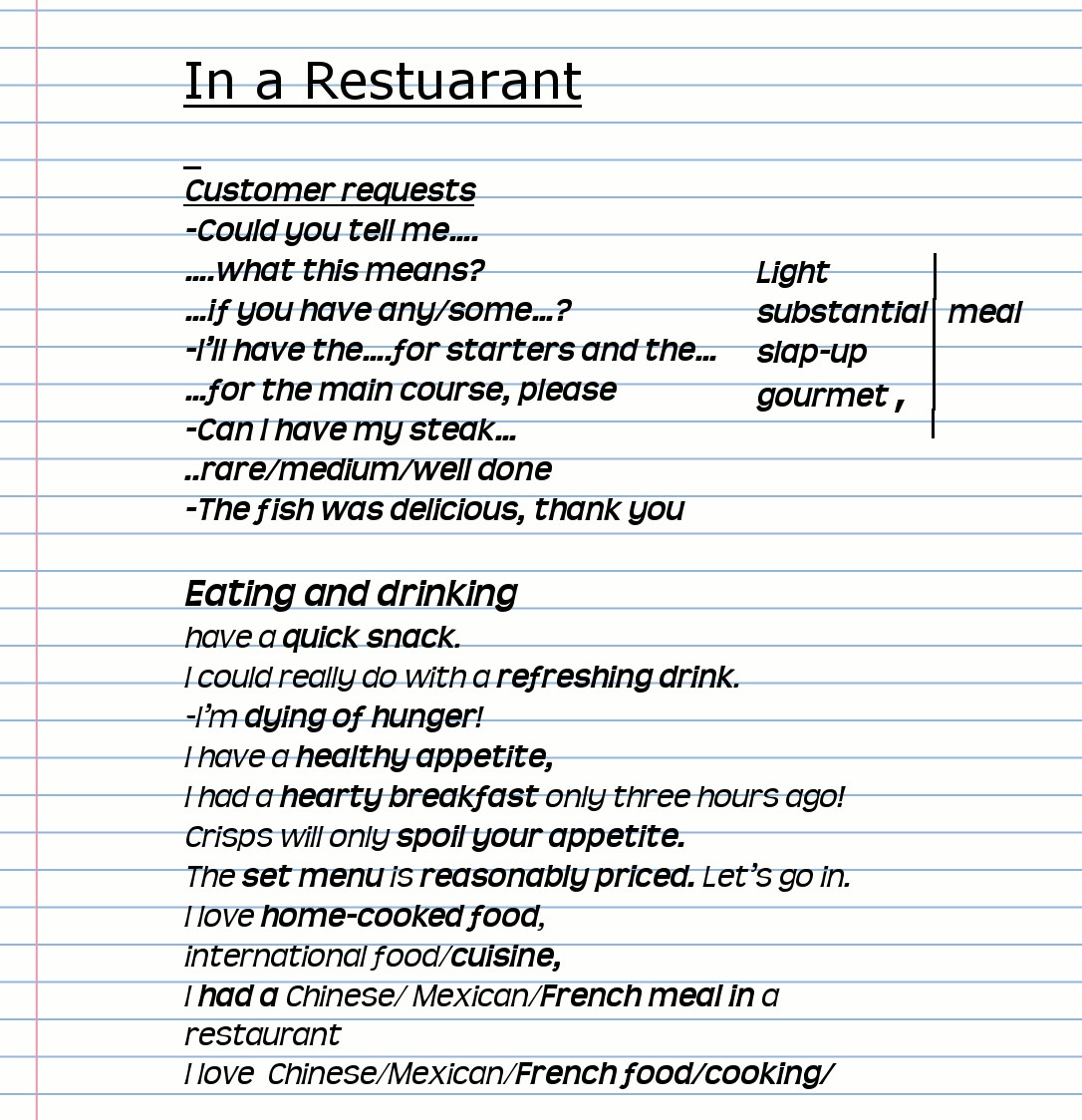
b. KEYWORDS (Expressions with like, time, make)

c. Differences between two CONFUSABLE WORDS:
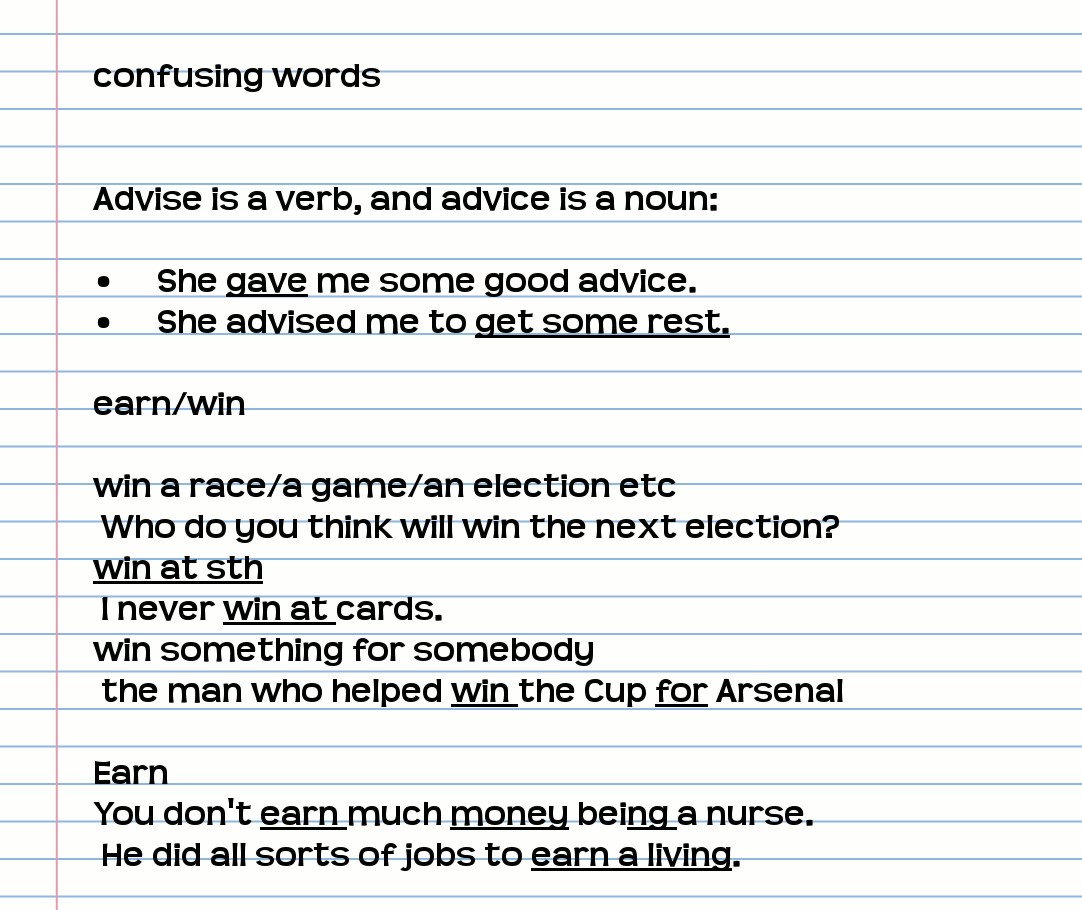
d. Common Grammar structures or patterns (for example, present perfect expressions)
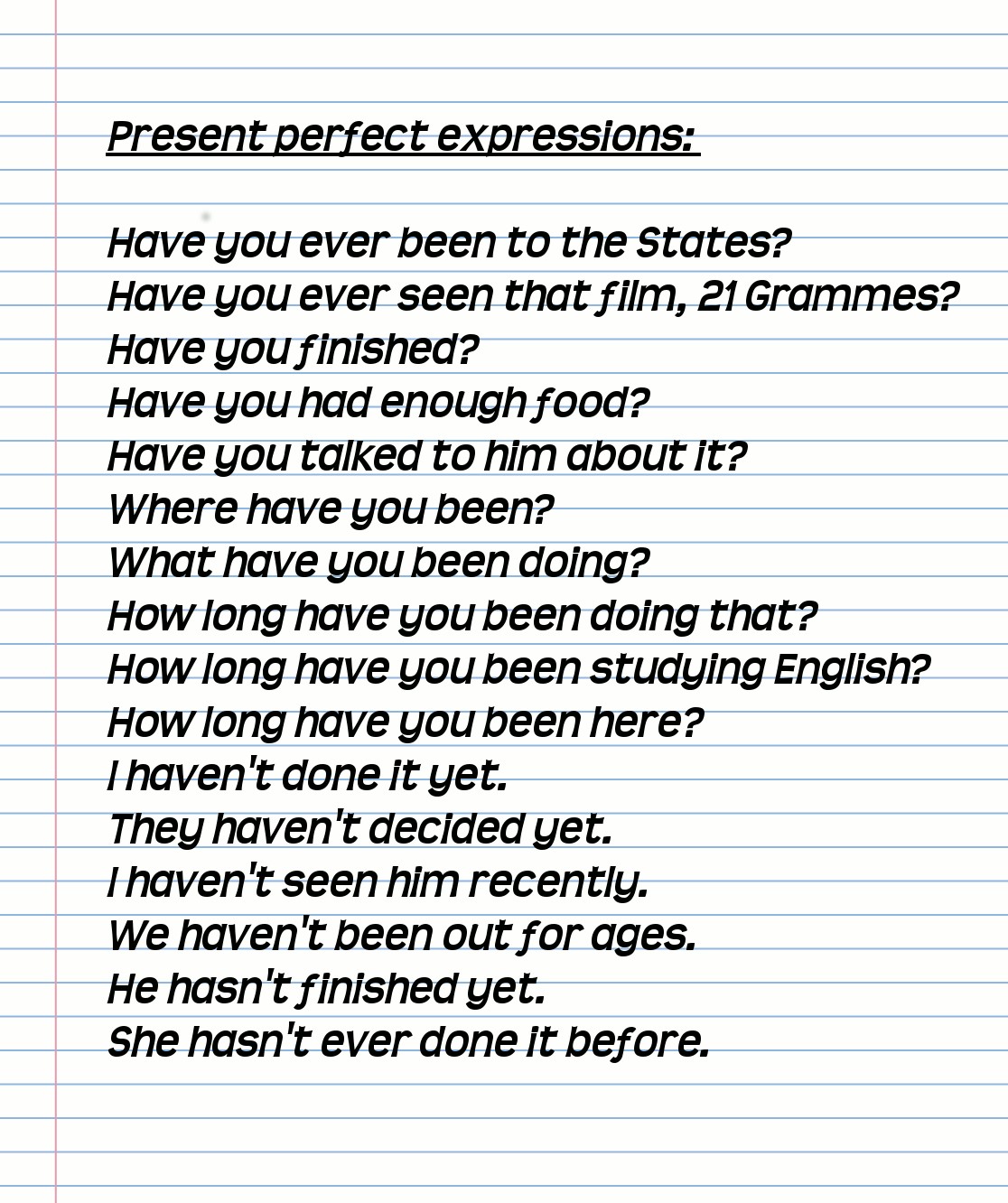
(Thanks to Hugh Dellar & Andrew Walkley for these examples)
Whichever way you decide to organize your notebook the following layout might help to keep everything in order:
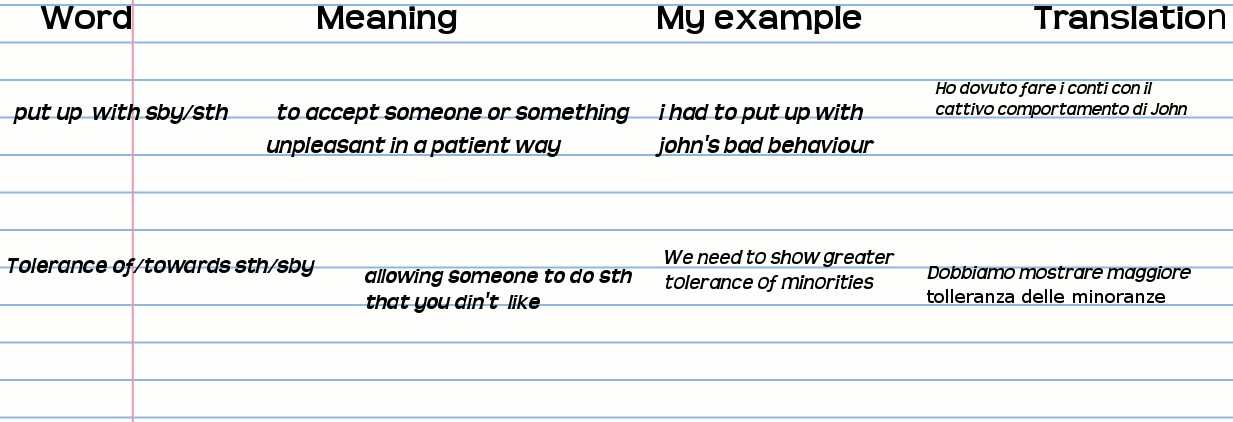
When you record vocabulary you should follow these guidelines:
- Less is more: It’s better to focus on fewer words but give full information about them, including collocations, grammatical patterns and possibly example sentences. There is no need to record every single new
- Words need space: Some space should be left after each entry so you can return to it and add other similar examples.
- Start a new topic on a different page: This way you can add new language to each section as you use your notebook. For example, if your current topic in class is Food and a piece of vocabulary related to Films is used, record that word in the Films section.
- Don’t forget to ask your teacher about the Topics she/he will be doing in class the following week.
Now, it’s up to you to try out some of these ideas, and perhaps some of your own too. Let us know how you get on. And if you’re having any difficulties, feel free to ask for advice. Hopefully, we can help.


